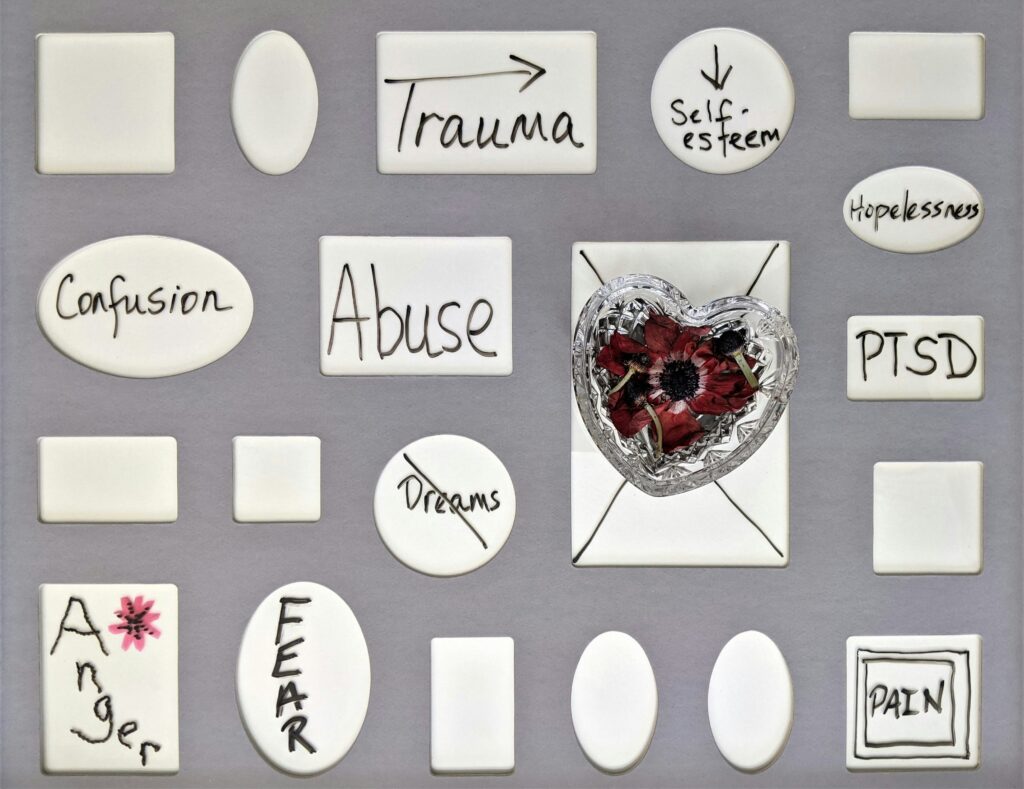
Living With Post-traumatic Stress Disorder
It is natural to feel afraid after experiencing a traumatic event. You may experience a range of reactions after facing trauma, and will recover from it over time. However, sometimes you may continue to exhibit traumatic symptoms even after months.
If you are experiencing all these feelings, you could be a victim of post-traumatic stress disorder (PTSD).
Also Check : Mental Disorder : An Invisible Illness
Living with PTSD
You are suddenly confronted by unwelcome, distressing memories of what happened to you. You startle easily and get scared.
You may have nightmares about past painful incident where you are at higher risk for vivid, disturbing dreams.
You’re sensitive. Crying comes on randomly. You are unable to console yourself. You will hold a pillow and crawl under a weighted blanket.
When something reminds you too much of what happened to you, you even avoid all activities related to that place, person or sight. Any reminder of traumatic event can catalyze panic attack. You kept having panic attacks from hearing a noise, or smelling .Visiting people or places that reminds you about trauma sounds scary. You may be on hyper alert mode just to ensure that you are always prepared for any other threats.
As a trauma survivor, you may see the world differently. You don’t trust easily though.
You may feel hopeless about future. You have a negative perception of self and the world at large.
You feel difficult to connect with others and have hard time being around people, especially those reminds you of traumatic event. You want to be alone. You isolate yourself to escape from these strong feelings.
Your inability to concentrate makes it difficult for you to readjust at workplace and home because your mind is often elsewhere.
The struggle is real.
Yes, PTSD affect every aspect of your life and therefore, living with it is debilitating. Traumatic feelings can negatively affect your present life too.
Understanding PTSD
Trauma can affect different people in different ways. And one way is that it can cause PTSD.
Post-traumatic stress is a mental health condition you may develop after experiencing traumatic events. The event may have threaten your life or safety, or you have witnessed serious accident, disaster or something like that.
Avoiding anything that reminds you of the trauma or being unable to remember aspects of ordeal is noticed. It’s common for you to lose control over your emotions that get manifest in the form of explosive anger or persistent sadness.
Your emotional outbursts often frighten or confuse your loved ones.
You loss interest in activities and life in general, and experience a sense of limited future. You slowly start to develop negative self-belief and may feel helpless, guilty or ashamed.
There are lots of misconceptions about PTSD. Person suffering from PTSD is usually considered as weak. It is wrongly assume that having PTSD means the person is ‘dwelling’ on past events. You might receive an advice like ‘get over it and move on’. Experience of PTSD is unique to each individual. When reminded of trauma, re-experiencing the traumatic event through intrusive memories, flashbacks, or intense mental or physical reaction is common.
Road to recovery
Recovery from PTSD is complex, and therefore stressful too. Still, overcoming challenges of PTSD and regaining control of your life is within your reach with psychological interventions.
You need to get open up more about unresolved or unrelenting trauma. You need emotional support to overcome your fears related to past experiences.
Exposure therapy is one where you are slowly introduced to triggers with some supervision. This can help you gain confidence and ability to better cope with the situation.
Being able to communicate with people in a similar situation is blessing.
Reclaiming your life from the shadows of past trauma is completely your responsibility.
Yes, living a meaningful life with PTSD is still possible. So, don’t let the baggage of past trauma hold you back any longer. Your healing journey must be your priority.
Start on a path to a life where you are no longer defined by your past but empowered by journey of recovery, resilience and control.
Disclaimer : The purpose of this blog is to create mental health awareness. This information is not a replacement for medical treatment or counseling therapy.
